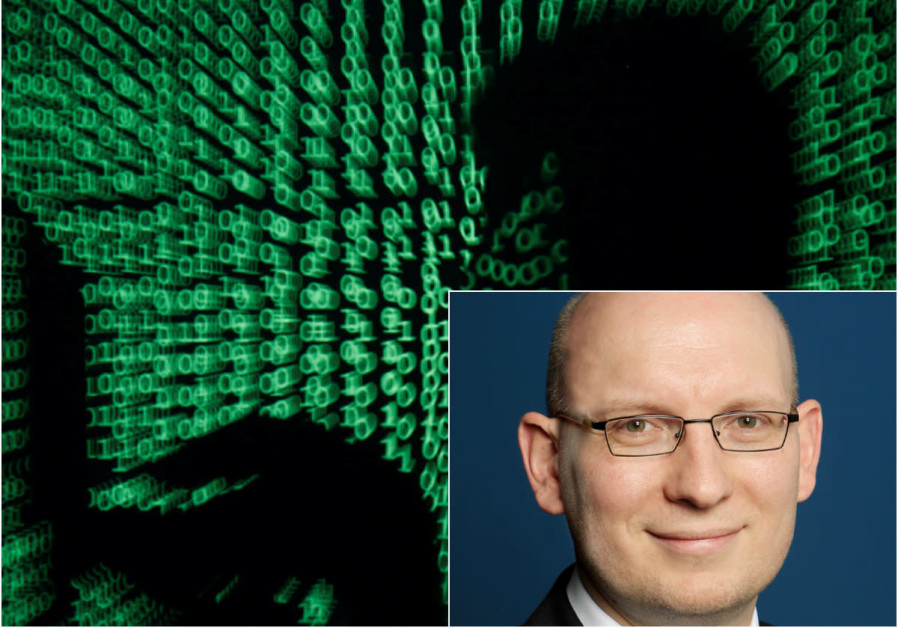Daniel Heinke, in Israel for annual counter-terror conference, discusses terror in a post-ISIS era.

ISIS may have “lost its attraction,” but global terror – especially “lone wolf” terror inspired by jihadist groups – is as problematic as ever, a top German government counter-terror expert told The Jerusalem Post last week.
In a series of exchanges over the past week, Dr. Daniel H. Heinke, Chief of Detectives and Director of the State Bureau of Investigation in Bremen, Germany – who is attending a major counter-terror conference in Israel on Monday – discussed terror issues which Germany is confronting, including Hezbollah and international cooperation.
A major issue to be addressed at the 18th annual world summit of IDC Herzliya’s International Institute for Counter Terrorism is the ongoing problem of lone-wolf terrorists both in Israel and globally.
Discussing lone-wolf terrorism, Heinke said that “Lone-actor terrorism is one of the terrorism threat clusters [that] German law enforcement [personnel] are particularly focusing on.” While the numbers are not high, he said, “it poses a major challenge for the security agencies due to… lack of early warning signs or detectable connections to known jihadists.”
While he said that to date, lone wolves have not perpetrated a high volume of attacks in Germany, “the potential is much larger… Law enforcement agencies focus on 770 high-risk jihadists [though this number includes both individuals currently in prison or not in the country]; the federal domestic intelligence service identified an even higher ‘personnel potential.’”
Heinke said that overall, following the fall of ISIS in Syria, “German security agencies were prepared for a wave of returning jihadism-motivated foreign fighters – this has not occurred so far.”
However, while only around one third of German “departees” have come back and ISIS “may have lost its physical attraction… its terrorism-propagating ideology is still prevalent. We have to keep the watch.”
Questioned about why fewer Germans and other foreign fighters have tried to flee to Germany after ISIS’s defeats in Syria and Iraq, Heinke said that he and other European counter-terror experts are still studying the issue.
“Obviously a lot of foreign fighters have been killed in Syria or Iraq – in our estimation around 190 out of about 1,000 people who traveled to Syria or Iraq because of an Islamist motivation. Others may face logistic difficulties after Turkey sealed its borders.” He said, however, that Western security agencies are prepared for more.
Heinke also confirmed an exclusive report by the Post in June regarding support for Hezbollah in Germany, and in Bremen in particular.
“The Bremen state domestic intelligence services published an estimate of around 950 supporters of Hezbollah in Germany, including around 60 in the state of Bremen,” said Heinke.
“These individuals are organized in a community and conduct fundraising activities for Hezbollah in Lebanon,” he said. “This is not illegal under German law, since the entire Hezbollah organization is not proscribed, but only its military branch.”
“However, as Hezbollah itself denied any internal segregation, we do monitor developments in this area very carefully,” he added.
Regarding Germany’s approach to combating terror, he said that, “We aim for a holistic… approach that spans the spectrum from covert intelligence collection” to “aggressive law enforcement investigations and the physical protection of possible targets; soft-power initiatives directed at community outreach; strengthening at-risk individuals; and an overall communication that promotes societal inclusion of all ethnic and religious groups.”
He said that individual “German states and communities developed several very promising strategies in this context, and the comparatively low number of successful jihadist attacks in Germany may indicate some positive results.”
However, he suggested that Germany’s federal government could do more strategic coordination in the future.
At the international level, Heinke said that there is a need “for an expanded systematic cooperation between those state actors tasked with ‘external’ security and those responsible for homeland security.”
More specifically, he recommended “establishing an international system for how evidence collected in-theatre during military counter-terrorism or counter-insurgency operations can be… used in criminal investigations by domestic law enforcement agencies.”
“Interpol can play a very important role here – but that depends on the willingness of the coalition partners,” he said.
Pressed about whether some terror was inevitable given the large number of Salafists (more radical Islamists) residing legally in Germany and Bremen specifically, he said, “I do not believe in inevitable terrorism.”
Germany has even seen a few public events canceled due to terror warnings, and a number of publicized incidents of recent arrests of terror cells.
Yet, “even though the number of Salafists both overall in Germany and [particularly] in the state of Bremen has reached an all-time high, this does not necessarily lead to violence-promoting extremism or even terrorism,” he stated.
With the right “coordinated and holistic approach” of cracking down, along with soft-power deradicalization processes, sufficient resources “and never-tiring vigilance,” Heinke said they could make their communities secure.
As reported by The Jerusalem Post
